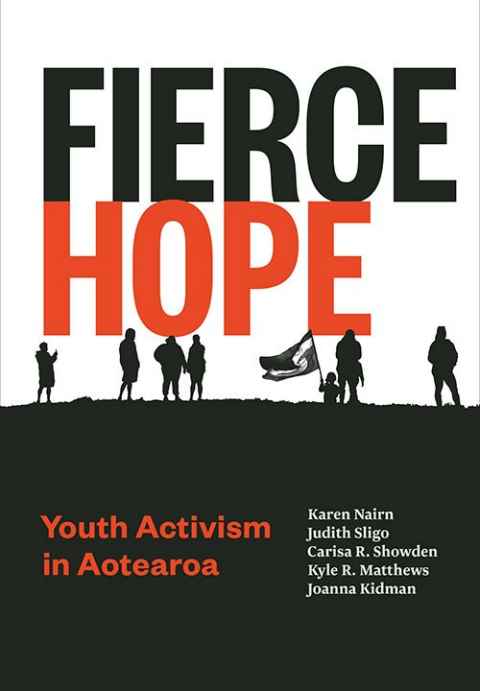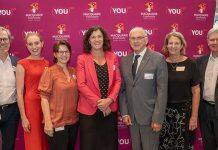Successful campaigns have a clear, positive vision and offer practical ways people can make a difference, according to new book on youth activism in Aotearoa.
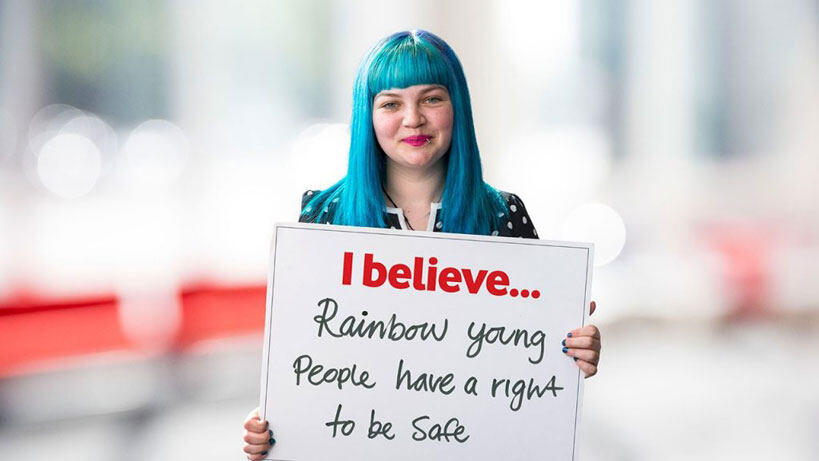

Fierce Hope: Youth Activism in Aotearoa focuses on six influential activist groups with causes ranging from Indigenous rights and sexual violence to climate change and justice system reform.
It is co-authored by University of Auckland sociologist Dr Carisa Showden, Professor Karen Nairn, Dr Judith Sligo and Kyle Matthews (University of Otago) and Professor Joanna Kidman (Victoria University of Wellington).
Members of ActionStation, Generation Zero (Auckland), InsideOUT Kōaro, JustSpeak, Protect Ihumātao and Thursdays in Black (University of Auckland) talk about what future they want for the country, how they believe we can get there and what motivates them to keep going.
Dr Showden says the book started with the idea of investigating two different narratives about young people, who are loosely defined as aged 18 to 29.
“Either that they’re being overly optimistic or naive, or that they’re too nihilistic. We were really interested in what was driving these youth-led organisations, what makes young people get involved and sustains them in this work and what their hopes are for the future.”
Funded with a Marsden grant, the project started in 2018 and extended through to the first Covid lockdown in March/April 2020. These were interesting and, in many ways, optimistic times, Showden says.
“Especially at the start of this period, there was an overall feeling of hopefulness; Jacinda Ardern came to power and there was a sense of reinvigorating politics, of doing them in a different way, especially as a counterpoint to people like Donald Trump, who was ‘anti-hopefulness’!”
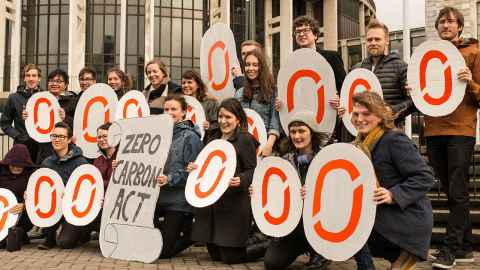

And while Covid was a terrible thing to be happening, the ways the world was responding to it – shutting borders, working from home, quieter cities, cleaner air, housing the homeless – proved we could rapidly alter life as we knew it, she says.
“It felt as if we were on the precipice of harnessing what we’d learned and doing things differently. I don’t think that’s eventuated unfortunately, but there was definitely a sense of possibility.”
The way the book evolved also mirrors the organisations it features, in that it’s an entirely collaborative project but with individuals taking the lead on researching and writing about each group, as their interests dictate.
“Also if we were going to be spending time with these groups it just felt more comfortable to support work that resonated with our own values,” says Dr Showden.
One focus of hers, Thursdays in Black, is a New Zealand branch of an international organisation who dress weekly in black and hold events to raise awareness of sexual violence.
“There are feminist activists in the US who talk about the ‘teaspoons’ approach’, emptying out the ocean, one teaspoon at a time; the ocean is oppression, and the teaspoon is social justice. You can see groups like Thursdays in Black working like that, making a difference with small, regular actions.”
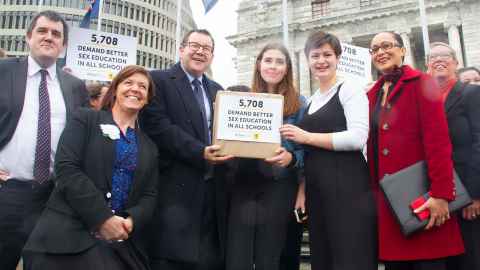

She said the groups who were good at saying what had already been achieved were more successful at enlisting support than those with more negative messages.
“Thinking about Protect Ihumātao, which of course is ongoing, they weren’t waiting to win the campaign to start living the kind of life they wanted to live on the land. They just went ahead amid the protest to show what it’s possible to do.”
“They had a village and gardens, they invited people in who needed an address and a safe place to come and live, they took care of people and said, ‘This is what we want rather than ‘this is what we don’t want’.”
The authors did interviews with members of each group initially, and then followed up a year later, as well as observing what went on at meetings and events and following the groups on social media.
They believe the book can be useful not only to scholars and the groups it features, but also to the wider activist community, in New Zealand and internationally, and perhaps also to those looking for inspiration to get involved.
“We hope people will see themselves reflected, have a sense of connection and challenge and be able to learn from what we observed,” says Dr Showden.
Fierce Hope (Bridget Williams Books, December 2022) is available online and in bookstores for $39.99 (RRP).
